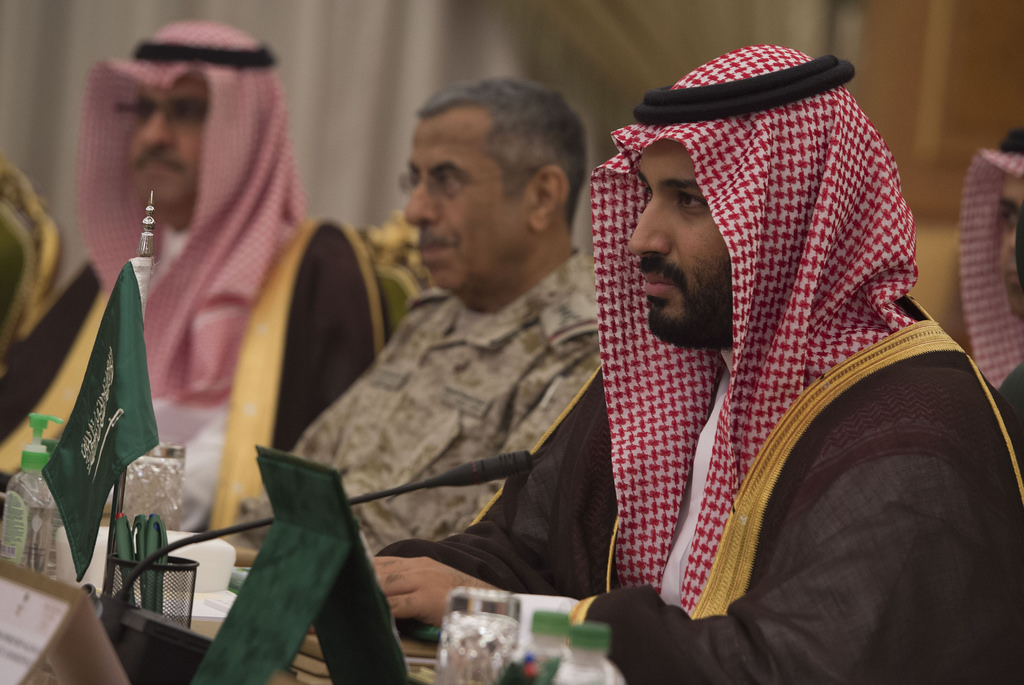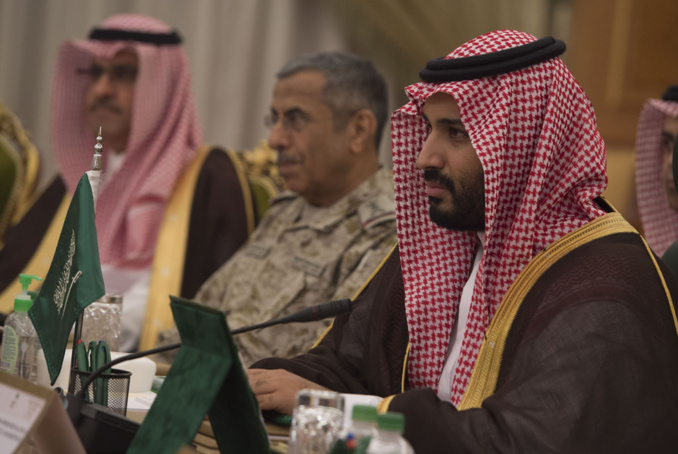Ties between the United States and Saudi Arabia Despite are long-standing and strong allied (suffice it to recall how Trump defended the Saudis after the murder of journalist Khashoggi). However, many American politicians are unhappy with the geopolitical games that Riyadh plays. On the one hand, Saudi Arabia continues a close friendship with Washington, and on the other, it is building new relations with Moscow, mainly based on cooperation in the energy sector.
Riyadh made the latest move in this game in Davos, when representatives of Saudi Aramco announced their desire to buy gas assets in the United States and invest billions of dollars in this project to become a big player in the gas sector.
Aramco has recently diversified its assets in many countries. Now the Arabian oil giant, for example, owns America’s largest refinery, Motiva in Texas. Saudi Aramco President Amin Nasser told Reuters that the company intends to invest another $ 10 billion in Motiva.
“We have a good appetite for additional investment in the United States,” Nasser said. “The Aramco gas team has permission to acquire gas assets throughout the supply chain. We gave them substantial finances, measured in billions of dollars.”
It’s not the first time when representatives of Saudi Aramco are talking about intention to enter the gas market, both natural and liquefied (LNG). However, this process is a long one, if we consider it from the first to the last step.
Despite the long-standing ties of the Kingdom with the United States, which originated under the administration of F. Roosevelt during the Second World War, Riyadh is actively building relations with its recent enemy, Moscow. The need to create such relations is caused by the difficult situation in the oil markets in recent years. Back in 2016, KSA and Russia agreed to reduce oil production in order to weaken market overstock and raise prices. This is how a new format of relations between oil-producing countries appeared. It was OPEC +, headed by Saudi Arabia and Russia.
Last year, Riyadh and Moscow agreed to reduce oil production once again. The goal was the same - to lower the overstocking, which, however, is now provoked mainly by the trade war between the USA and China, as well as by the weakness of the developing economies, especially manifested during the record high production by the three main oil producers: Saudi Arabia, Russia and USA.
In the wake of the previous agreement’s success, Saudi Arabia and Russia are going to extend cooperation to the gas sector. Riyadh wants to become a major investor in the rapidly developing sector of Russian liquefied gas. In turn, President Vladimir Putin plans that Russia will eventually compete with the main players in the LNG market (Qatar, Australia and the United States).
Riyadh and Moscow are expanding cooperation in the oil and gas sectors and are jointly controlling oil prices. This situation creates and strengthens allied relations in the geopolitical sphere. Moreover, in this area, the lion’s share of cooperation and relations falls to the Middle East, where the United States and Russia usually have opposite interests and objectives. The latest example of this longstanding rivalry is the civil war in Syria.
Of course, it may take years to create a full-fledged geopolitical union, but at any time a situation may arise when Riyadh will have to choose between American interests and rapidly growing ambitions and Russia's prestige in the region. Most likely, this will be a very difficult choice, which can determine the state of the oil and gas markets and affect the stability in the Middle East for many years. Moreover, the responsible for the decision will probably be Crown Prince Mohammad bin Salman. It is difficult to predict the situation now. The farther in time this choice will be pushed back from today, the greater the chances for Moscow to become a real competitor to Washington in the fight for disposition of Saudi Arabia.
source: oilprice.com
Riyadh made the latest move in this game in Davos, when representatives of Saudi Aramco announced their desire to buy gas assets in the United States and invest billions of dollars in this project to become a big player in the gas sector.
Aramco has recently diversified its assets in many countries. Now the Arabian oil giant, for example, owns America’s largest refinery, Motiva in Texas. Saudi Aramco President Amin Nasser told Reuters that the company intends to invest another $ 10 billion in Motiva.
“We have a good appetite for additional investment in the United States,” Nasser said. “The Aramco gas team has permission to acquire gas assets throughout the supply chain. We gave them substantial finances, measured in billions of dollars.”
It’s not the first time when representatives of Saudi Aramco are talking about intention to enter the gas market, both natural and liquefied (LNG). However, this process is a long one, if we consider it from the first to the last step.
Despite the long-standing ties of the Kingdom with the United States, which originated under the administration of F. Roosevelt during the Second World War, Riyadh is actively building relations with its recent enemy, Moscow. The need to create such relations is caused by the difficult situation in the oil markets in recent years. Back in 2016, KSA and Russia agreed to reduce oil production in order to weaken market overstock and raise prices. This is how a new format of relations between oil-producing countries appeared. It was OPEC +, headed by Saudi Arabia and Russia.
Last year, Riyadh and Moscow agreed to reduce oil production once again. The goal was the same - to lower the overstocking, which, however, is now provoked mainly by the trade war between the USA and China, as well as by the weakness of the developing economies, especially manifested during the record high production by the three main oil producers: Saudi Arabia, Russia and USA.
In the wake of the previous agreement’s success, Saudi Arabia and Russia are going to extend cooperation to the gas sector. Riyadh wants to become a major investor in the rapidly developing sector of Russian liquefied gas. In turn, President Vladimir Putin plans that Russia will eventually compete with the main players in the LNG market (Qatar, Australia and the United States).
Riyadh and Moscow are expanding cooperation in the oil and gas sectors and are jointly controlling oil prices. This situation creates and strengthens allied relations in the geopolitical sphere. Moreover, in this area, the lion’s share of cooperation and relations falls to the Middle East, where the United States and Russia usually have opposite interests and objectives. The latest example of this longstanding rivalry is the civil war in Syria.
Of course, it may take years to create a full-fledged geopolitical union, but at any time a situation may arise when Riyadh will have to choose between American interests and rapidly growing ambitions and Russia's prestige in the region. Most likely, this will be a very difficult choice, which can determine the state of the oil and gas markets and affect the stability in the Middle East for many years. Moreover, the responsible for the decision will probably be Crown Prince Mohammad bin Salman. It is difficult to predict the situation now. The farther in time this choice will be pushed back from today, the greater the chances for Moscow to become a real competitor to Washington in the fight for disposition of Saudi Arabia.
source: oilprice.com



















